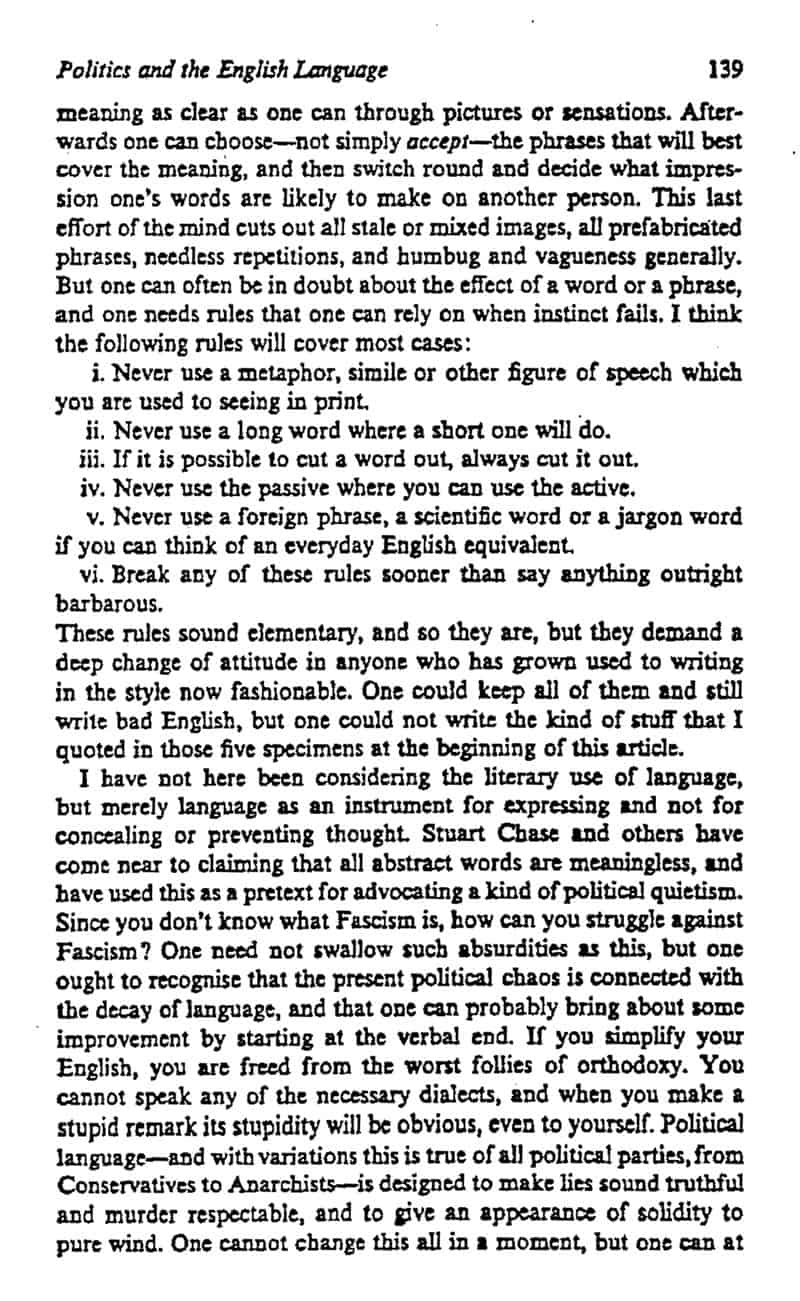George Orwell published his essay “Politics and the English Language” in April 1946 after a second world war and one of the most extensive uses of propaganda in an era of mass media. In the essay, he offers an argument, and guidance, for clear writing.
Modern English, especially written English, is full of bad habits which spread by imitation and which can be avoided if one is willing to take the necessary trouble.
From 1933 until the end of World War II in 1945, the Nazi propaganda machine spread its gospel of violence to acquire and maintain power. Albert Speer, Hitler’s lead architect, said at the Nuremberg trials that “what distinguished the Third Reich from all previous dictatorships was its use of all the means of communication to sustain itself and to deprive its objects of the power of independent thought.”
“Politics and the English Language” reflected Orwell’s great concern with truth and language and how deliberately misleading language is used to conceal disagreeable political facts. It wasn’t a new theme for him. Animal Farm had been published the previous August, and Orwell was beginning work on Nineteen Eighty-Four.
Orwell’s Six Rules for Writing
These rules sound elementary, and so they are, but they demand a deep change of attitude in anyone who has grown used to writing in the style now fashionable.
To guide writers into writing clearly and truthfully, Orwell proposed the following six rules:
- Never use a metaphor, simile, or other figure of speech which you are used to seeing in print.
- Never use a long word where a short one will do.
- If it is possible to cut a word out, always cut it out.
- Never use the passive where you can use the active.
- Never use a foreign phrase, a scientific word, or a jargon word if you can think of an everyday English equivalent.
- Break any of these rules sooner than say anything outright barbarous.
Orwell’s Six Rules are a good reminder to anyone who proposes to communicate accurately. They have an enduring freshness to them, significant to all times and places.


Want to keep up with our blog? Sign up to get an email notification when we publish new posts.


